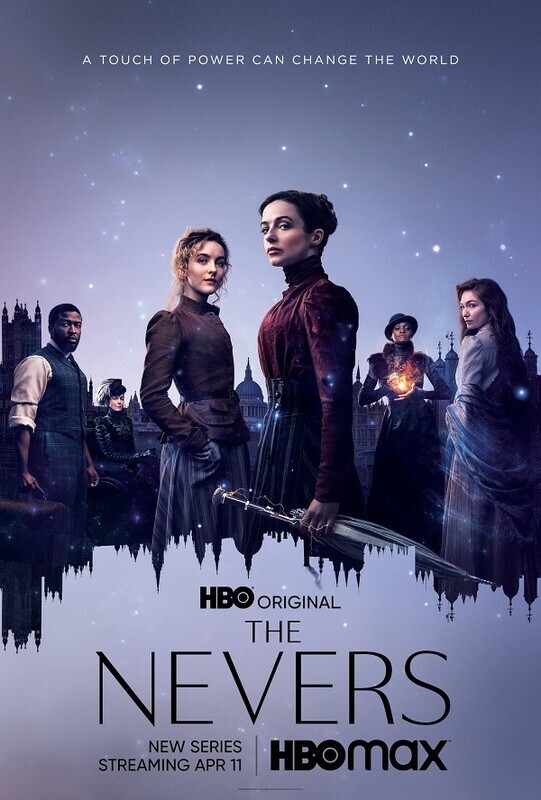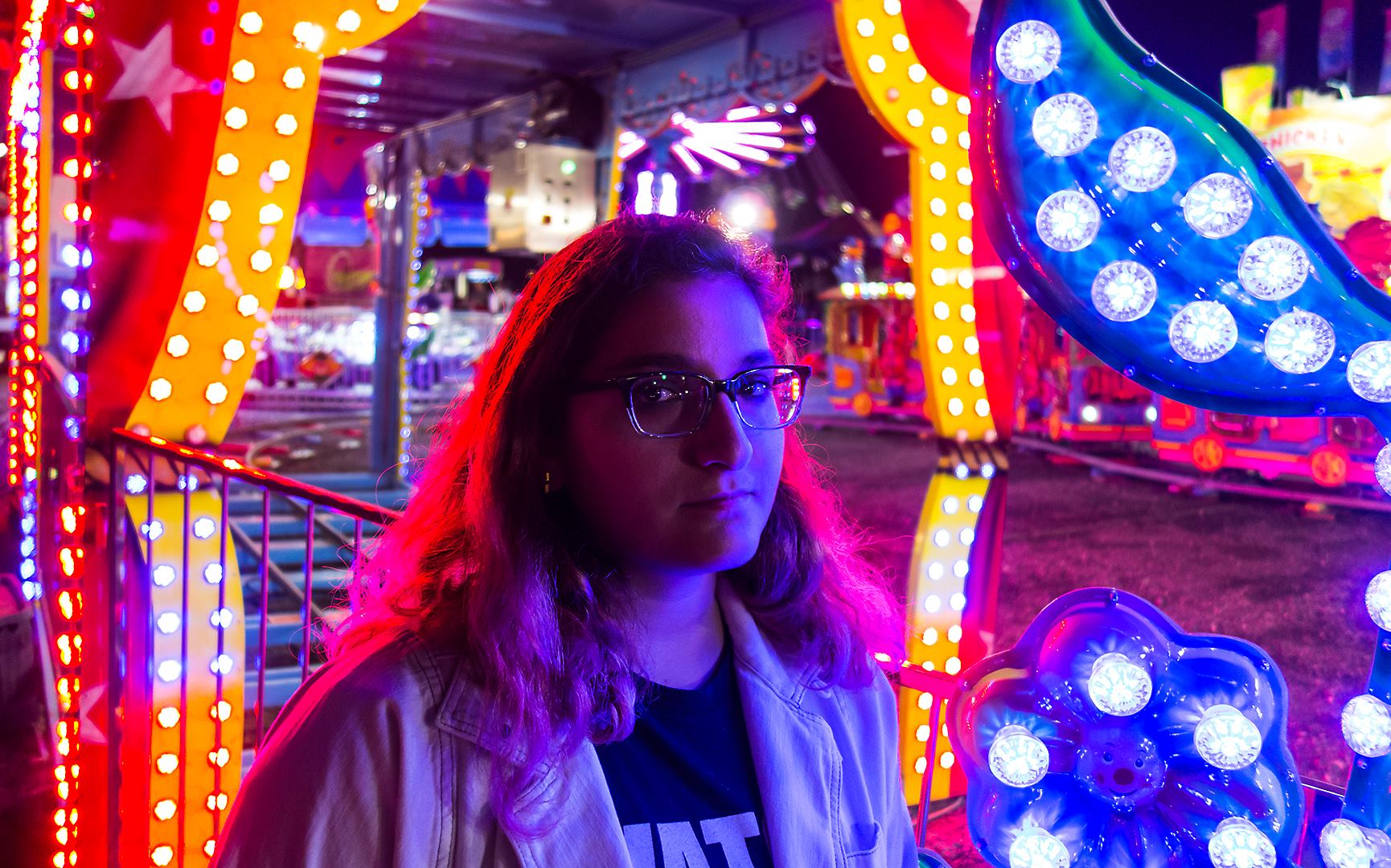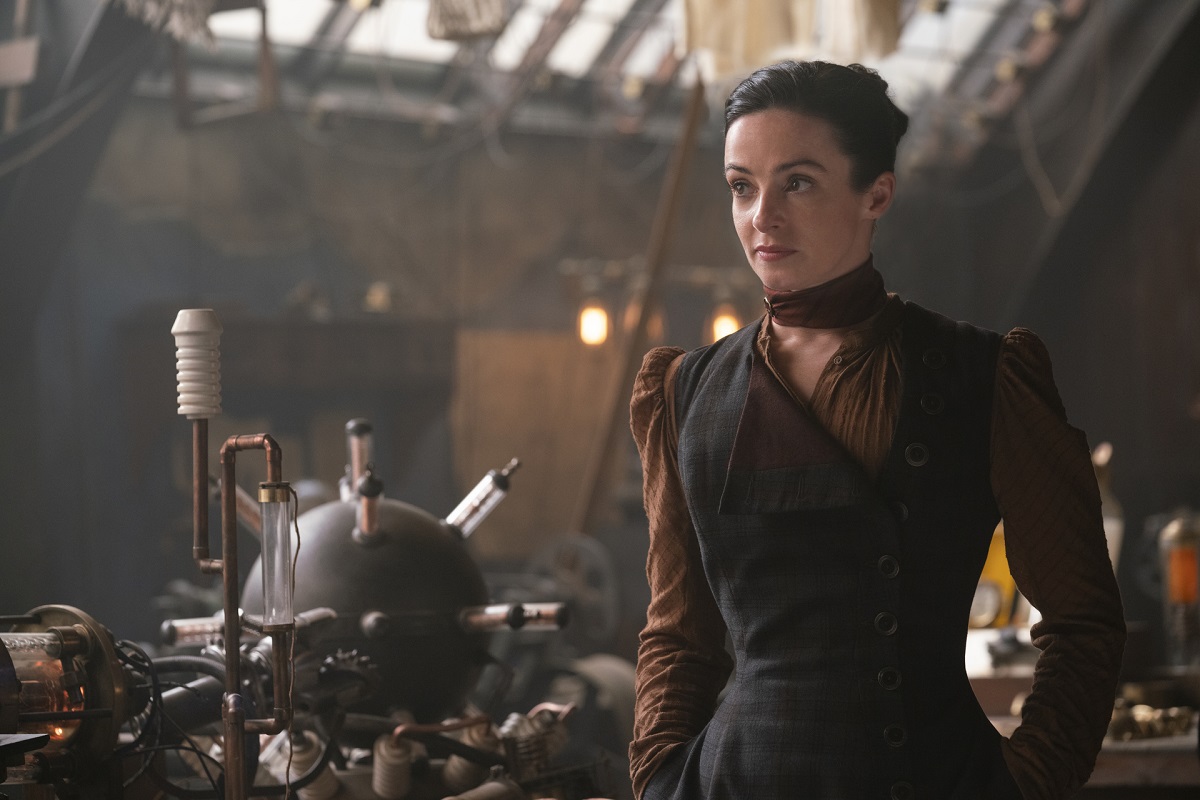Joss Whedon doesn’t totally plagiarize himself with the new HBO series “The Nevers,” but he comes pretty close. Whedon, who stepped down as writer, director, executive producer, and showrunner in November 2020, is no longer affiliated with “The Nevers,” but the first part of this first season unmistakably bears all his fingerprints. (Six episodes will begin airing on April 11, while the second four, delayed to COVID, will be available at a later date.) Women (mostly young, pretty) alternately tortured and empowered by supernatural abilities (given mysteriously, resented by men) come together to save the world (even though it’s a patriarchal cesspool). “The Nevers” is steampunk “Buffy the Vampire Slayer,” with the Turned here as the Slayers and the Scooby Gang, and you don’t get closer to late-seasons Sarah Michelle Gellar as Buffy, with her self-hating sexual choices and desire to abandon all responsibility, than the brawl-happy, pint-chugging Mrs. Amalia True (Laura Donnelly). None of this is to discredit the sprawling cast of “The Nevers,” who—particularly Donnelly—attempt to grasp mysterious, disparate, silly plot threads and bring them together into something sensible through the sheer charisma of their performances. It feels like Whedon’s fault that it rarely works.
The fact that “The Nevers” immediately introduces so many players and so many subplots is what makes it practically impossible to have a clear sense of where the series is going from its first four episodes (the pilot, “Exposure,” “Ignition,” and “Undertaking”). The cast is too sprawling; there are too many overlapping interests between the Turned, the humans who fear and fetishize them, and the various arms of the British government that want to control them; and there are too many villains. At one point Mrs. True complains, “Cops, the Church, the Purists, and our masked freaks. There’s no shortage of people who hate us,” which made me do a double take. There are anti-Turned religious people in the mix, too? That’s too many baddies to overwhelm viewers with at once! It’s too many faces and motivations to keep track of when the character themselves are barely introduced past being various “Buffy” types, and when so many details about the Turned themselves feel overly malleable.

Are the women basically like the X-Men? Sort of. Some of their powers are more straightforward, like 10-foot-tall teenager Primrose (Anna Devlin); remember when Buffy’s sister Dawn became a giant in the comic book series Buffy the Vampire Slayer Season Eight? Others are more confusing, like Mrs. True, who seems to have super-strength and super-speed (ahem, BUFFY) and can definitely glimpse into the future, but she has ambiguities, too; villain Maladie (Amy Manson) accuses Mrs. True of being able to shed her skin. Still others are purely useful, like Mrs. True’s primary companion, genius inventor Penance Adair (Ann Skelly), who can see the currents of electricity (and serves as the Willow Rosenberg stand-in, down to her red hair), and prostitute Désireé (Ella Smith), who can make people tell the truth. There’s a nebulousness to all this that serves the story, but that also means these women, based on our brief interactions with them, aren’t developed as more than their abilities. Need a woman who can throw fire? We got that! Need a woman who can sing entrancingly? We got that! Need a guy who can fire a machine gun arm? We got that too! But their likes, dislikes, passions, interests? Couldn’t tell you.

Yes, men have powers in “The Nevers” too. That feels a bit like narrative surrender, like Whedon tip-toed toward misandry and then realized he didn’t have the gumption to go all the way. His non-commitment is an unfortunate acquiescence. “The Nevers” would be a more interesting show if it purely followed a “women have powers, men don’t, now go!” storytelling outline. What could really change in our world if the power imbalance was shifted so fully? Without that kind of curiosity, “The Nevers” fails to clarify what exactly it’s trying to say about the experience of being a woman, or being a Black or brown immigrant to the UK, or being differently abled, past a generic “Everyone deserves a family” message. That’s a valid idea, but was an alien fish ship sparkling magic dust on people really necessary to make this point?
“The Nevers” begins in London in 1896, when a strange event (ahem, the aforementioned alien fish ship sparkling magic dust on people) transforms people all around the country. (Question: Did this event also occur outside of London? How did that affect the world at large?) People—mostly women—who absorbed that strange substance have begun to develop inexplicable powers, and three years later, society is divided on what to do about the Turned. Government agents, like former soldier turned union-busting and equality-hating Lord Gilbert Massen (Pip Torrens), are obsessed with stamping them out, and see their existence as an act of war upon the monarchy. Police detectives, like Inspector Frank Mundi (Ben Chaplin), are intent on bringing law and order back to the streets; he’s been chasing serial killer Maladie, whose Turn is deriving power from pain, over five murders. Spoiled rich guys, like Hugo Swann (James Norton), want to use the Turned to line their own pockets; his dream is to expand his sex club in which these women and men work, drawing in clients aroused by their powers. And countless other people are anti-Turned, too: parents who believe their changed daughters have been possessed the Devil; working men who think the Turned will steal their jobs; and storeowners who think the Turned will infect their other employees.
Trying to navigate all the haters are Mrs. True and Penance, who together run the St. Romaulda’s Orphanage with the help of benefactor Lavinia Bidlow (Olivia Williams). Their orphanage is a bustling place that accepts the Turned of all ages, and the pair of women pay for protection and information from local gangster the Beggar King (Nick Frost), who every so often passes along details of another Turned child or adult he hears about. The pilot episode follows Mrs. True and Penance as they foil a kidnapping attempt on young Matilda (Viola Prettejohn), who is able to speak in every language but English, by cloaked, gun-carrying villains whose faces looks like they’re encased in wax. Over the next three episodes, the motivations of this crew, what they’re trying to discover about the Turned, and what they’re trying to unearth in London are very sparingly revealed. But “The Nevers” struggles to build a rhythm when it overloads each episode with so many other details and churns through story so quick.
In the first four episodes alone, we get: a forbidden romance for Mrs. True, a connection between her and Maladie, a disagreement between her and Penance about how the Turned should treat humans (clearly another “X-Men”-like story point that will come up throughout the season), and a strange communication intended only for Mrs. True that is transmitted through an unaware Turned woman who comes to Mrs. True for protection. There’s shadiness around Mundi and blackmail attempts; the seemingly insane Maladie spilling details of her plan that don’t make any sense, but that somehow result in numerous deaths; and Maladie’s associates turning on her and on each other. There are operas and parties and secret meetings, chess matches and orgies and duels, bar brawls and experimental procedures and double crosses. “The Nevers” doesn’t want for narrative, but it feels like Whedon throwing all the “Buffy”-lite ideas he had together—women mistaking pain for pleasure, female friendships built on quippy asides and oppositional personalities, condescending men looking down on women in every way they can—and hoping some of it would gel. “If you can look a man in the eye, you can stab him in it,” one of Mrs. True’s comrades says. “The Nevers” should have devoted itself to that misandrist idea rather than this hybrid of “X-Men,” “Buffy the Vampire Slayer,” and “The League of Extraordinary Gentlemen,” which four hours in feels like a copy of a copy of a copy.
Four episodes screened for review.












